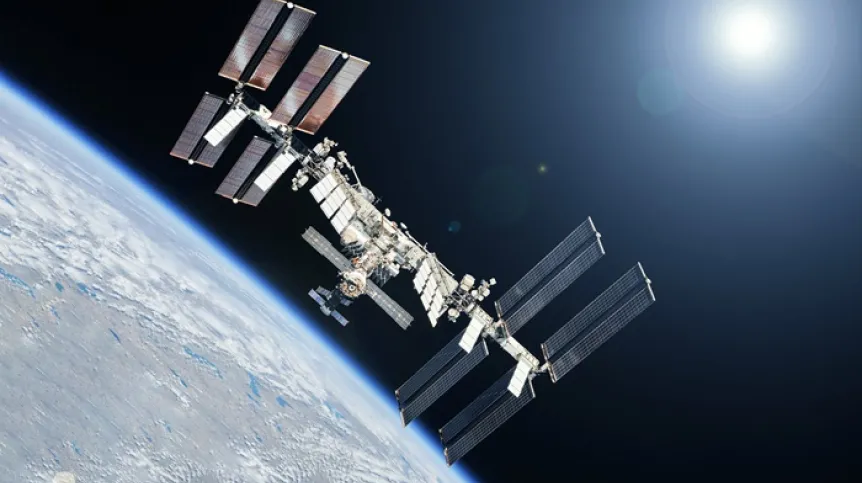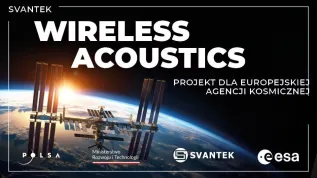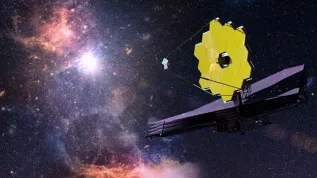
Researchers from Kraków and foreign partners have studied the adaptive mechanisms of bacteria collected from the International Space Station (ISS). The findings indicate that microorganisms isolated from the interior of the ISS have adapted to life in space.
The study of microorganisms that had travelled with astronauts to the ISS, survived, and then settled permanently on the space station, was conducted by a team of researchers from Kraków research units: the Małopolska Centre of Biotechnology at the Jagiellonian University and the Sano Centre for Computational Personalized Medicine, in collaboration with NASA's Jet Propulsion Laboratory and Acibadem University in Istanbul.
The results were included in a scientific paper recently published in the prestigious journal Microbiome.
The researchers studied the adaptation mechanisms of bacteria collected from the ISS which indicate that microorganisms isolated from the interior of the ISS have adapted to life in space.
According to the researchers, the discoveries and innovations open a new chapter in considering the future of humanity beyond Earth. 'Learning the secrets of microbial adaptation is the key to how humans can survive on Mars or other planets. Our ability to adapt and discover the secrets of survival in extreme environments brings us closer to the dream of space travel and settlements on other planets, transforming science fiction into scientific reality', they say.
The researchers add that the microorganisms on the ISS are in a constant battle for survival in harsh conditions. With limited water and nutrients, confined to airtight spaces, they must find ways to adapt to a challenging and unfamiliar environment. Factors like microgravity, hypotonic stress due to low salt concentrations, and intense cosmic radiation push these bacteria to develop innovative strategies to stay alive.
The research reveals that bacteria isolated from the ISS have undergone notable changes in their cellular physiology and metabolism, developing unique survival strategies.
All five bacterial strains from the ISS carry DNA sequences that are absent in their Earth-bound relatives. These include genes linked to peptide synthesis, membrane transport, and mechanosensory channels. The latter help protect cells from rupturing under hypotonic stress. In two closely related species of the genus Microbacterium, the researchers also discovered unique surface proteins from the oxidoreductase family, which are missing in their Earth-based counterparts. These newly identified genes and proteins may be critical for the survival of bacteria in space, showcasing their remarkable adaptations to extreme environments.
Researchers have also observed an increase in metalloproteinases, including metallopeptidases, in space strains of bacteria. These proteins help manage oxidative stress by neutralizing free radicals that would otherwise damage cellular structures, offering protection against radiation.
Mutations in the genes responsible for these metallopeptidases further reflect the bacteria's adaptation to extreme conditions, as evidenced by an increase in the amino acids arginine and methionine in these proteins. Arginine enhances the structural stability of the enzymes, while methionine, which forms sulphide bonds, boosts their resistance to free radicals produced by cosmic radiation.
The genomes of bacteria found on the ISS contain genes responsible for antibiotic resistance, biofilm formation, and potential new antimicrobial compounds.
'These discoveries could pave the way for developing new drugs with applications both in space and on Earth. This research not only has the potential to improve the health of astronauts in challenging space environments but also offers a chance to create innovative therapies for humans, helping to combat resistant infections and contribute to new strategies for treating infectious diseases', the scientists say.
The new discoveries in space genomics were made possible by advanced functional annotation tools based on deep machine learning, such as DeepFRI developed at Sano.
The new discoveries could greatly impact future research at a newly established laboratory at AGH University of Science and Technology in Kraków.
A state-of-the-art habitat is being built there to simulate space missions. It will include a dedicated laboratory section for astrobiology research. This specialized facility at the Space Technology Centre will be the first place in Poland where students will be able to test solutions in environments that mimic missions to the Moon and Mars. (PAP)
PAP - Science in Poland
rgr/ agt/ kap/
tr. RL













